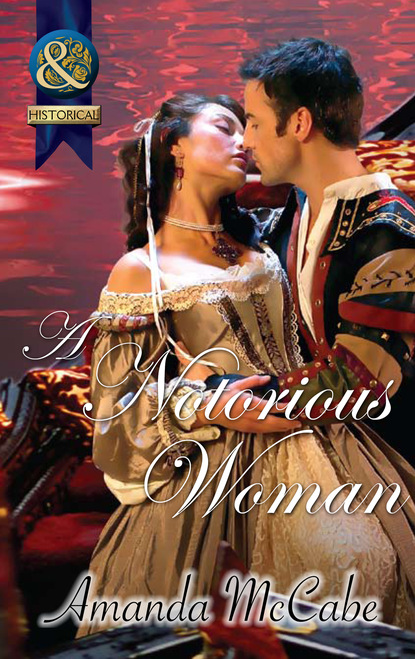
Полная версия
High Seas Stowaway
Before she even stepped through that portal, Bianca could smell it. The sticky, coppery tang of blood. The miasma of vanished life.
She eased back the curtain, peering into the little chamber. Silvery incense smoke still hung in the air, its sweetness blending sickeningly with the blood, the remnants of Ermano’s bergamot cologne, the tang of spilled wine. Atop the round table was a jumble of cards, goblets tipped on their sides. The stools were knocked askew on the floor.
And Bianca could see her mother’s foot behind the purple tablecloth, the torn hem of her white gown.
Still caught in that stick web of dreams, the piercing numbness of ice, Bianca stumbled around the table and the broken stools. Her mother lay in a crumpled heap on the tiles, her eyes wide and staring, glasslike, into nothingness. Her long, dark brown hair spread around her, matted by the blood from the gaping wound at her breast.
The wound caused by the dagger still poised there in her body, its emerald-set hilt glinting in the gloom and smoke. The dagger Bianca had seen often enough in the sheath at Ermano’s waist.
She knelt slowly next to her mother, reaching out to lightly touch the cold hand. Bianca could see it all in her mind, as horrifyingly sharp as if she had witnessed it herself rather than mooning over Balthazar Grattiano outside, listening to his faradiddle about truth and new lives. She saw Ermano in a rage when the cards would not tell him what he wanted, saw him destroy the instrument of his frustration—her mother. Then he just walked away.
Bianca remembered the rumours. Ermano Grattiano destroyed who and what he chose, anyone who thwarted or angered him. It was even said that, years ago, he had murdered his own mistress, the beautiful Veronica Rinaldi. He never paid for his crimes, of course, and anyone who tried to hold him accountable, who even witnessed his evil deeds, soon vanished themselves.
Bianca stared in horrible fascination at that dagger. Ermano would surely be back for it, if nothing else. It was too valuable, too distinctive. He would be back to clean up his deed. Or he would send Balthazar to do it for him.
Had Balthazar just been using her, then? Using their ruse of friendship to help his father in this evil scheme? Betraying her feelings for him?
A sudden spasm of bone-deep grief and fear seized Bianca, banishing that distant, numb dream, those last hopes. Her hand tightened on her mother’s, and a ragged sob escaped her lips. Her mother was dead, at the hands of a terrible, and terribly powerful, villain. And she, Bianca, was trapped. If she stayed, if she confronted the Grattianos and took the revenge her heart cried out for, then surely she would also end up dead. A dagger in the heart, and then tossed into the canal to rot alone in the swirling waters.
Who would avenge her mother then? Who would see that justice came to the Grattianos, if she was dead?
As Bianca knelt there beside her mother’s body, it was as if the sheltered girl she had been fell away like a warm cocoon, a concealing shawl that held her apart from the cruel world. A wall of new ice encased her heart, hardening her, steeling her resolve. Ermano might have killed her mother, while she was distracted by the all-too-handsome Balthazar. But they would not destroy her. Instead she would be the instrument of their destruction.
This was one crime of theirs that would not go unpunished. She was just a girl now, but that would not always be so. She knew what she had to do, come what may.
Bianca dragged the purple cloth from the table, scattering cards and goblets, and used it to cover Maria’s body. Then she hurried to a small carved chest in the corner, rummaging through the linens and boxes of incense until she found the bag of coins her mother always secreted there. Those, along with that the treacherous Balthazar gave her, would see her away from Venice, to a place of safety where she could study and plan. No doubt Balthazar had pressed the ring and money on her as some sort of salve for his guilt, or perhaps as a silencing bribe.
But she would use it to keep herself away from the Grattianos—and to help with their downfall one day.
For she would be back, somehow, and when she was it would be Grattiano blood that would flow at last.
Chapter One
Santo Domingo on the island of Hispaniola—1532
It was a quiet evening in Santa Domingo. But Bianca knew very well that would not last long.
She stood behind the high counter along the back wall of her tavern, rinsing pottery goblets and keeping a close eye on her customers. It was mostly the usual crowd, sailors and merchants biding their time as they bought supplies, loaded their cargoes, and waited for the convoys that would bear them back to Spain. A few of the men were headed in the opposite direction, from Maracaibo or Cartagena towards the mines of Peru.
They were all focused on the riches they hoped awaited them, the gold and pearls and emeralds, and drank their ale and rum with a tense, watchful air.
Bianca had been hearing disquieting whispers, though, and she was sure they had something to do with the ship that had limped into port today. Its battered sails and broken mainmast were like an omen in a town that was far too superstitious already.
But the more frightened the men were, the more they drank, and thus the more coin they spent in her establishment. Bianca was all in favour of that, as long as things didn’t turn nasty. It had taken her a sennight to clean up after the last fight, and those were days she could ill afford to lose. She had to pay her servants, her suppliers—and she didn’t intend to end up on the streets. Not again.
She narrowed her gaze as she studied the room. It wasn’t vast or grand, nothing like the gilded palazzos of Venice still so vivid in her memory. It was just a long, low chamber, the walls freshly whitewashed after the last repairs. The wooden beams overhead were dark with smoke, hung with bunches of dried herbs in a vain attempt to drive away the stench of rum and wool-clad bodies in the island heat. The uneven planks of the floor were warped and sticky, covered by close-packed tables and benches.
Si, humble it might be, but it was hers. A small accomplishment, perhaps, compared to the great feats of fortune hunting she heard every day here in Santo Domingo. But it was something.
Bianca stored the last of the goblets behind the counter, checking to make sure her pistol was tucked there still. Quiet as it was, she still didn’t trust that strange, heavy tension in the air. It was almost like the atmosphere that hung over the island just before a storm broke, taut and still. Something was afoot. Santo Domingo had been peaceful enough as they waited for the arrival of the next Seville-bound flota, but perhaps there was a raid coming.
She frowned as she remembered the last battle here with French pirates, Jean Florin and his men hanging at the mouth of the harbour as she and her late husband Juan had arrived. But that was years ago. The French had seen the folly of their actions, and ceased to harry the mighty Spanish fleets and their fortified ports. It couldn’t be that. Then what was it?
Bianca glanced towards Delores, who was stirring the stew pot over the fire and humming to herself. The maid wouldn’t know; she was a good worker, but cared mostly for flirting with the sailors. But Bianca knew who would have all the gossip, who knew everything that happened from Puerto Rico to Peru. And he was sitting right over by the wall.
She poured out a generous portion of her most expensive beverage, a punch made of rum, sugar and nutmeg, and carried it over to Señor de Alameda, aide to Governor de Feuonmayor.
Alameda was a quiet, watchful man of around thirty years old, not one to cause a fuss, yet still a regular visitor at the tavern. She suspected he was a spy of sorts, and heard more of his news at the docks than he did in the governor’s fortress. Also, he was diddling Delores. Not that Bianca cared. His escudos were good, he caused her no trouble, and he sometimes passed on titbits of valuable information.
She placed the goblet before him and sat down across the small table, wiping her hands on her apron. “I hope all is well with the governor, Señor de Alameda,” she said.
He glanced at her from his inscrutable black eyes, giving her a polite smile. “Ah, Señora Montero. Your company is indeed a rare pleasure. And, yes, the governor is quite well. Much occupied with the expansion of the cathedral.”
“Hmm. Then that cannot be what is amiss.”
Alameda took a slow sip of his drink. How very Spanish he was! Nothing ever given away. So polite, so careful, so dangerous. “Amiss?”
“I have lived in this town long enough to know when trouble is in the air,” she said. “And I have an interest in what happens. Business is better when all is peaceful and prosperous.”
He laughed ruefully. “That is undeniable, señora. A peaceful island where we can all go about our business is better for everyone. Our churches and storehouses unmolested, our shipping free of pirates…”
Bianca turned suddenly cold, despite the warm breeze from the windows, carrying the smell of the lush green island from the mountains out to the sea. She remembered those rotting bodies twisting in the wind, the smoldering shells of houses and the desecrated icons. Reports of torture, rape, murder. “Pirates? Is that the trouble?”
Alameda glanced away. “Señora Montero, pirates are always a menace in this part of the world, are they not? Desperate villains who seek to steal from the King and the Church. Surely you know that as well as anyone, for was your late husband not a sailor? But they are not an immediate threat to Santo Domingo. Quite the opposite.”
The tavern door blew open, admitting a rowdy group amid shouts and coarse laughter. Delores could see to them for now, but Bianca knew she would soon have to go back to work. The time for conversation was short; she had to find out what was happening. In Santo Domingo, knowledge was power. “What do you mean, Señor Alameda?” she said impatiently.
He nodded. Like any primero player, he knew when it was time to show his hand. “I have heard reports that the Calypso has made its way into our port.”
Whatever Bianca expected to hear, it was not that. She gave a startled laugh. “The Calypso? Have your spies started seeing fantasy vessels, then?”
The Calypso, captained by a man of near-supernatural navigational skills, was whispered about in the tavern when the rum was freely flowing: undefeatable in battle, so fleet it could outrun any storm, said to have sailed to the very edge of the earth and returned bearing unimaginable riches. Even Juan, her salty old navigator of a husband, had been awed by the tales. They had the aura of ancient, golden myths.
But Bianca had long ago given up on myths and heroes.
“The Calypso is real enough,” Alameda said.
“And her captain? The man they say could navigate his way out of hell itself? And steal the devil’s treasure while he’s at it.”
Alameda laughed. “He is real, too, though I doubt he has seen the underworld.”
“There is hell enough on earth, especially for a man who sails the seas for his living.”
“True, Señora Montero. Just don’t let Father Yanez hear you speak so. None of us have chosen an easy path so far from home, not even someone as wealthy as the captain of the Calypso.”
Bianca glanced towards the counter, where Delores was pouring rum and dishing out stew. “If the Calypso is so very grand, why have I never seen it? I have been in Santo Domingo for a fair number of years. I thought I knew every vessel that plies its way between Peru and Seville.”
Alameda shrugged. “I’ve heard tell Havana is his port of choice, and too that he has his own hidden island somewhere between here and Jamaica. He is servant to no one; he certainly does not answer to Governor de Fuenmayor. Perhaps not even to the king.”
A man who was servant to no one. Now Bianca knew he was a myth. And a most intriguing one. “Then who does he answer to?”
“That, Señora Montero, is something I would very much like to know. I’d pay a great deal to anyone with more information on the captain of the Calypso.”
“You know so much already.”
“Me? I am merely a functionary. I seek only to mind my own business, make my fortune so I can quietly retire in Andalucia. Away from this cursed place.”
And amen to that, Bianca thought, swatting at a mosquito. But much as she, too, sometimes longed to escape, dreamed of Venice and a long-lost home, she knew this was her place now. A place always fraught with dangers. “I would vow you are more than that, señor. Does the governor not rely on you?”
“You are too kind.”
“In fact, I would vow you know everything that happens on Hispaniola. Even to the furthest estancia up-island.” The noise of the tavern grew, spiralling louder and louder as more new arrivals poured in. “Such as why the Calypso would suddenly be calling at Santo Domingo.”
“That is simple enough. I hear there was a great battle off the coast of Puerto Rico.”
“A battle?”
“Between the Calypso and a pirate vessel. The villains were driven away, but the Calypso’s mainmast was damaged. It was made worse when she was caught in that storm in the Mona Passage a few days ago.” His gaze swept over the room. “The storm that has made Santo Domingo so very crowded of late. So many newcomers to our fair city, many of them seeking shelter at the governor’s fortress.”
“So, the Calypso has come into port for repairs?” Bianca laughed. “Not so mythical after all. I would have thought anyone who could steal the devil’s treasure could magically repair his own mainmast, even in the midst of a storm.”
“Oh, señora, I would not dismiss him so quickly.” Alameda laid a few coins on the table and rose to his feet. “Now I must be on my way. I have a conundrum of my own waiting at the fortress, though one I am rather looking forward to returning to. I thank you for the drink, and for the conversation. As always, it has been most enlightening.”
Bianca pocketed the coins as she watched him leave, his fine clothes quickly obscured by the crowd of rougher, rowdier patrons. He might be enlightened, yet she was more puzzled than ever. What was it about this one ship and her mysterious captain that seemed to have all of Santo Domingo balanced on a knife’s edge?
She made her way back to the counter, searching each face to see if one could belong to the unknown captain. Most of them were people she knew, sailors who usually called at her tavern when they were in port. They came to celebrate, to spend their newfound treasure, or to mourn losses at sea, bury their sorrows in her rum. The coin seemed plentiful enough tonight, but she also saw apprehension on their sunburned faces.
She glanced beneath the counter to make sure the pistol was still there. She didn’t usually care for firearms; they were too unpredictable, too apt to fire off at the wrong moment. Just like the inhabitants of this town. But when havoc threatened, there was nothing like a great deal of smoke and noise to disperse it.
Bianca took over pouring out the drink, sending Delores to wait on the tables. The room was crowded indeed now, every chair filled, men lined up along the walls. The windows were all open to let in the warm tropical breeze, but it wasn’t quite enough to banish the heat. The smell of rum and wool and Delores’s stew.
Bianca lifted the loose curls off the nape of her neck, the wild tendrils that always escaped their pins and clung damply to her skin. For some reason—perhaps Alameda’s words of “home”—she couldn’t be rid of the images of Venice in her mind. Cool, white rooms, their tall doors open to terraces over the canals. The sound of music in the air, masked faces around every corner. There had been danger aplenty there, too. No one knew that better than Bianca. But there was also great beauty.
She closed her eyes for a moment, and for that one instant she stood again outside her mother’s house. A girl full of foolish hopes and dreams, gazing up at the face of—
No! She slammed a goblet down on the counter, opening her eyes to the hot, noisy reality of the tavern. She would not think of that again, of Venice and Balthazar Grattiano. They were gone. This was all that mattered now. His betrayal had led to so much grief and hardship. To her life on her own.
She had work to do.
As she sent Delores off with another tray of drinks, a man appeared at the counter. Bianca stared at him curiously. He was not one of those regular customers. Indeed, she was certain she had never seen him before. He was tall, with the lean, muscled frame of someone accustomed to climbing rigging, but he was also thin, almost—hollow.
Despite the heat, he wore a hooded cloak, his face cast half in shadow. But Bianca could see enough to tell he was quite handsome, or would be if he shaved off his tangled black beard. His sun-darkened face, all gaunt angles, and his brown eyes were almost elegant, in a haunted way. Drawn with taut lines of some deep-seated sorrow. He gazed at her wearily.
For a moment, she wondered if he was a wraith, summoned by her own unhappy memories. A spirit, perhaps flown from the decks of that half-myth the Calypso. But then he gave her a whisper of a smile, and her strange fancies vanished. He was just a man, though certainly a very odd one. Even for Santo Domingo.
“Rum, por favour, señora,” he said, his voice deep and rusty.
Bianca poured out a generous measure of the thick brown liquid into a pottery goblet, sliding it to him over the scarred wood of the counter. “You are new to Santo Domingo, yes?”
“It has been some time since I last visited,” he answered, after he neatly drained the liquor. She poured out more. “This place was owned by Señor Valdez then.”
“It has been a time. I bought it from Valdez more than a year ago, before he went back to Spain.”
“A year ago,” he muttered, as if that was an unfathomable length of time. Perhaps it was. Lives did change in only a moment, after all.
She found herself unaccountably curious about this wraith. People came and went on this island, all of them intent on their own business, most of them running from something. Just like Bianca herself.
“Was your ship damaged in the storm?” she asked. Perhaps he was even a crew member of the Calypso. That would explain why she had never seen him before. A mysterious wraith from a mythical ship.
He nodded shortly, holding out his goblet for yet more rum. “I will not be here for long, señora.”
Here in Santo Domingo? In her tavern? In the mortal world? It was obvious he wasn’t in a talking mood, so she just poured.
“Oh, señora!” Delores cried, hurrying behind the counter to refill her tray. The noise was almost deafening now. “They say the Calypso is in port! And that her captain defeated a vast fleet of pirates and repaired the mainmast in a storm with his own hands…”
When Bianca turned back to the counter, the cloaked man was gone. She saw only a glimpse of his back, as he headed towards a small table in the shadowed corner.
As the night went on, some of the men passed out on the floor and were dragged out by their comrades, only to be replaced by new, thirstier patrons. More men from ships seeking repairs after the storm. But Bianca did not glimpse the wraith-man again, busy as she was pouring the rum and ale and mixing more punch.
Matters seemed to have reached a crescendo of laughter and incoherent, drunken shouts when the door opened once more. Not with a great bang, as with more desperate men in search of liquid oblivion, but slowly. Quietly. Yet still everyone turned to look.
Bianca straightened from wiping spilled ale on the counter, pushing her hair back from her brow. She tensed at the sudden watchful air in the room, the way the great noise fell to a murmur—like the waves of the sea just before a storm hit.
This, then, was surely the trouble that had been coming all night.
She turned to the door. A man stood there, framed in the night-darkness. Not alone—there were six or seven others arrayed behind him. But he was all she could see.
He was tall, probably taller than any other man in the tavern as he had to duck his head through the doorway. Like the strange cloaked man, he had the lean frame of a man who had spent his life balanced on a pitching deck and climbing swaying rigging. His chest and legs were supple beneath his black leather jerkin and hose, a tall pair of worn black leather boots. She glimpsed powerful, bronzed forearms revealed by the turned-back sleeves of his white shirt. A man of action, then, of the sea and all its dangers.
His hair, a long, straight curtain of sun-streaked light brown, fell to his shoulders, bound back from his face with a black silk scarf.
And that face…
She knew it well. Too well. Bianca clutched at the edge of the counter, certain now that she had to be dreaming. For that face, despite the fact that it was a bit older, the skin browned by the tropical sun and the sea’s salt spray, belonged to Balthazar Grattiano.
The one man she had vowed to kill if she ever saw him again.
Chapter Two
Bianca held on to the counter, watching in wary silence as Balthazar and his men made their way through the room. The crowd seemed to part for them, like Moses and the Red Sea; the roar of sound faded to whispers, crackling like summer lightning. She shivered as she watched them take their seats at a suddenly empty table near the window.
For an instant the humid taverna faded, and she was a girl again, standing on the walkway outside her house as she listened with rapt fascination to Balthazar Grattiano talking of ships and navigation, of the wide, wondrous world to be found outside Venice. Talking of glorious freedom.
He had gained his freedom, it seemed, for here he was, in the New World, thousands of miles from his privileged Venetian realm. But she was still locked in her prison. It went with her wherever she turned.
“Is it really him, señora?” she heard Delores say. The awed whisper dragged her back from Venice to the rough wooden floor of her taverna.
“Him, Delores?” Him—the devil?
“The captain of the Calypso! I had heard tell he was here, in Santo Domingo, but I did not believe it.” Delores sighed. “He is certainly most handsome.”
“Whatever he might be, he is a customer,” Bianca said, with a brisk calm she was far from feeling. She thrust a tray into Delores’s trembling hands and proceeded to fill it with goblets of punch. “And hopefully a thirsty one. Go on now.”
She leaned against the counter, watching as the maid sashayed across the room to Balthazar’s table. As she laid out the drinks, Balthazar glanced up at her with a sensual half-smile.
If Bianca had harboured any doubts at all that this was not Balthazar Grattiano, that smile banished them. It was the same charming smile she remembered, alluring, beautiful, carving deep dimples in his cheek that made a woman long to touch them with her fingertip. To kiss them, to feel the rough silk of his sun-bronzed skin under her tongue.
A lovely, sex-laden smile—with a strange, empty sadness behind it.
He was older, yes, just as she was. Hardened by the sea and the harsh sun. Yet still Balthazar Grattiano, the love of every woman in Venice.
And still just as irresistible to women, Bianca thought wryly as she watched Delores giggling. Most of the men who came to the tavern Delores turned away with a saucy word. She was faithful in her way to Alameda. But she seemed in no hurry to leave Balthazar’s side.
Bianca didn’t have much time to worry about Balthazar and his charm, though. A fresh crowd of customers came in, wanting their rum, and she was kept busy again. Slowly, inexorably, the noise level grew once more as a game of dice commenced. The throng closed around Balthazar, blocking him from her view.












